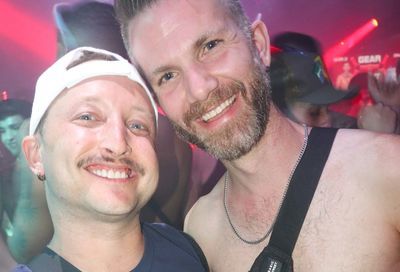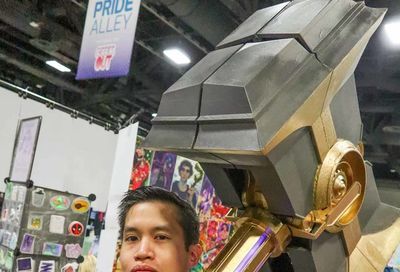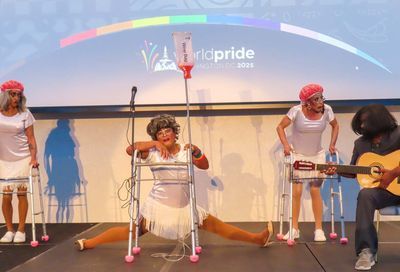Turning Point Reached
We are winning faster than most of us thought possible
When some of us say the LGBT movement has reached a turning point, others object. We are not finished, they say, confusing “turning point” for “end point.” Of course we are not done. But to the extent equality is the goal, we are nearer the finish line than the start.
Equality, however, is not everyone’s goal. As the saying goes, some folks don’t want a seat at the table, they want to turn the table over. These are not the violent anarchists of a century ago. Today’s self-styled revolutionaries take the milder approach of crapping up city parks during ”occupy” movement actions, protesting corporate sponsors of gay events, and picketing the Democratic National Convention. They engage in street theater while scorning the moral compromise of electoral work.
Marriage equality and open military service were never priorities for the anti-assimilationists. Former National Gay and Lesbian Task Force leader Urvashi Vaid, in her 2012 book Irresistible Revolution, writes, “The LGBT movement has been coopted by the very institutions it once sought to transform.” This elides the fact that most activists never shared her revolutionary stance.
Vaid claims the mainstream gay-rights movement neglects issues like women’s reproductive freedom, racial justice, and transgender equality. As a mainstream activist who has advocated on those issues, I smell a straw man. For instance, my 2009 column titled “Pro Gay, Pro Choice” provoked one reader to call me a murderer who ought to be dead. (The FBI paid the guy a visit.) Doesn’t that sort of thing earn a son of the patriarchy a teensy bit of feminist cred? We all have our feet of clay, but it is irritating to have self-righteous scolds forever telling us we “have to start” discussions of injustices over which we have wrestled for years.
Vaid objects to single-issue alliances with conservatives whose other positions she opposes, claiming such alliances treat women, people of color and trans folk as dispensable. This ignores our real diversity of viewpoints in favor of an illusory progressive monolith. Homeless gay youth would not have been helped by rejecting the hedge-fund managers who raised funds for the four GOP state senators who provided the winning margin for marriage equality in New York.
I confess I am tired, as a civil service pensioner, of being lectured on the class struggle by a wealthy leftist. In any case, reforming Wall Street does not require spurning Wells Fargo as a Pride parade sponsor, any more than supporting diverse families requires mocking same-sex couples as imitating 1950s sitcom families. While privileged intellectuals harangue their inevitably imperfect allies, change is happening. The black high school students I advise on their senior theses are comfortable enough applying the civil rights model to gay families that they use old cartoons of segregated drinking fountains to illustrate the anti-gay discrimination they oppose.
What do we do after the overturn of the Defense of Marriage Act renders our old siege mentality implausible? We build on our gains, keep fighting for trans equality, and work in coalitions to defend American diversity. Upholding respect for that diversity does not require talking revolution, denouncing capitalism, or demanding every conceivable reform at once.
Some of us seem afraid of winning. Devaluing anything short of instant utopia (whose definition we don’t agree on) ignores the incremental gains by which real progress happens. Most LGBT people do not want a revolution. We want equality, in our daily lives as well as the law books. And we are winning it faster than most of us thought possible.
What we can do, as we grow accustomed to what professional outsiders deride as “mere equality,” is to live our lives while reaching a helping hand to others. That is plenty gay enough.
Richard J. Rosendall is a writer and activist. He can be reached at rrosendall@starpower.net.
Support Metro Weekly’s Journalism
These are challenging times for news organizations. And yet it’s crucial we stay active and provide vital resources and information to both our local readers and the world. So won’t you please take a moment and consider supporting Metro Weekly with a membership? For as little as $5 a month, you can help ensure Metro Weekly magazine and MetroWeekly.com remain free, viable resources as we provide the best, most diverse, culturally-resonant LGBTQ coverage in both the D.C. region and around the world. Memberships come with exclusive perks and discounts, your own personal digital delivery of each week’s magazine (and an archive), access to our Member's Lounge when it launches this fall, and exclusive members-only items like Metro Weekly Membership Mugs and Tote Bags! Check out all our membership levels here and please join us today!





















